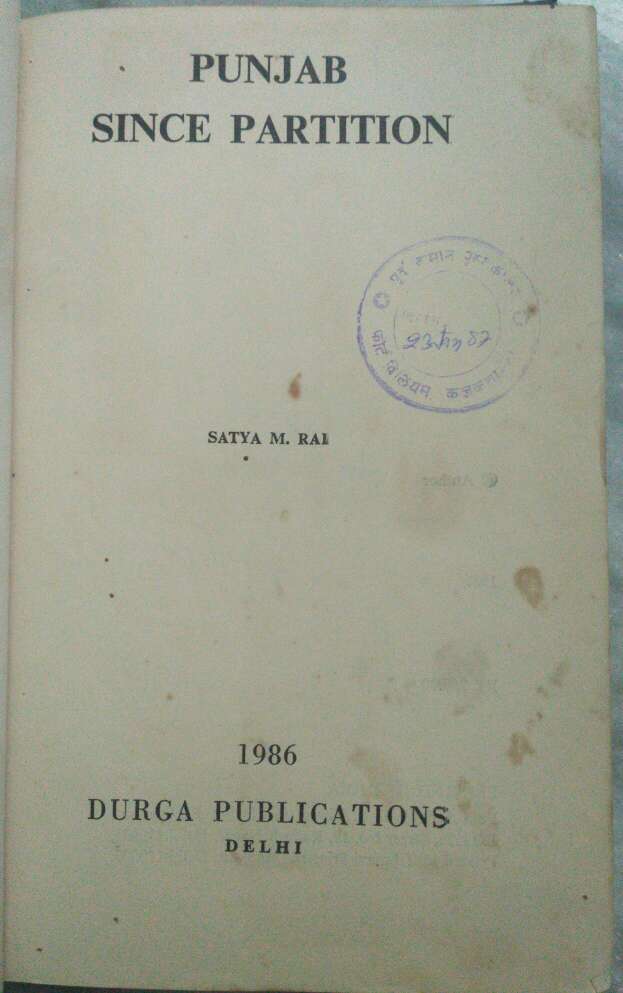The partition of the Punjab was one of the greatest catastrophes that overtook its people. The unpreparedness of the
people and the governments for such an unprecedented eventuality was evident in the process of migration, evacuation and
resettlement. The division of an administrative, economic and
cultural unit, without natural boundaries demarcating the areas,was bound to have a deep impact on the life of the state. A comprehensive study of the problems arising out of the partition
of the Punjab is, therefore, relevent even to-day when communal forces have raised their ugly head once again.
The present study deals mainly with the administrative and political effects of the partition and takes up in particular
the problems created by the influx of the refugees and its impact on the administration and politics of the state. It discusses the strategic importance of the area which was overnight
turned into a border state and the problems arising out of it.Since the end of the World War I, the idea of the right
to self-determination had gripped the minds of all the democrats the world over, particularly in the colonies. It was also used to solve some of the knotty problems of large national minorities in certain countries of Europe. The idea was implemented also in Soviet Russia after the October Revolution wherein the national minorities in some cases were given autonomy and the right to self-determination to the point of
secession was recognised in the Soviet constitution. Partition and territorial rearrangement, after the World War II, were the means to solve certain political and ideological issues in different parts of the world such as in Korea, Indo-China, Germany,Israel and the like. Over the years, however, it has been found
that partitions have thrown up a host of other problems leading to acrimoneous relations between the two parts of the
erstwhile one country and some times to wars as in the case of Israel and Indian sub-continent. Consequently, of late, there are attempts at reunification of some countries even with diverse political systems for instance, two Koreas, East and West Germany and even of China with Taiwan and of course
Hongkong.The partition of India was also a consequence of this post-war trend in the world to solve the communal problem in the country. It was demanded mainly by the Muslim League on the basis of the theory that the Muslims constituted a different nationality. The demand was supported by the Communist Party
of India, who in their zeal to apply the solution of the right to self-determination to a widely different and complex situation.
Punjab Since Partition -Satya M. Rai
Click on the button below to contact us on WhatsApp, and buy.
HOW TO PAY
You can pay send your payment at any of the following UPI IDs, or scan the QR code, or send the payment directly to our bank:
INDIA POST PAYMENTS BANK

(IPPB) UPI ID= 9563646472@postbank
Malay De Sarkar
A/C No: 100005759940
IFSC: IPOS0000001
Mobile: 9563646472
STATE BANK OF INDIA

(SBI) UPI ID= 9563646472@sbi
Malay De Sarkar
A/C No: 32004843406
IFSC: SBIN0000162
Mobile: 9563646472


